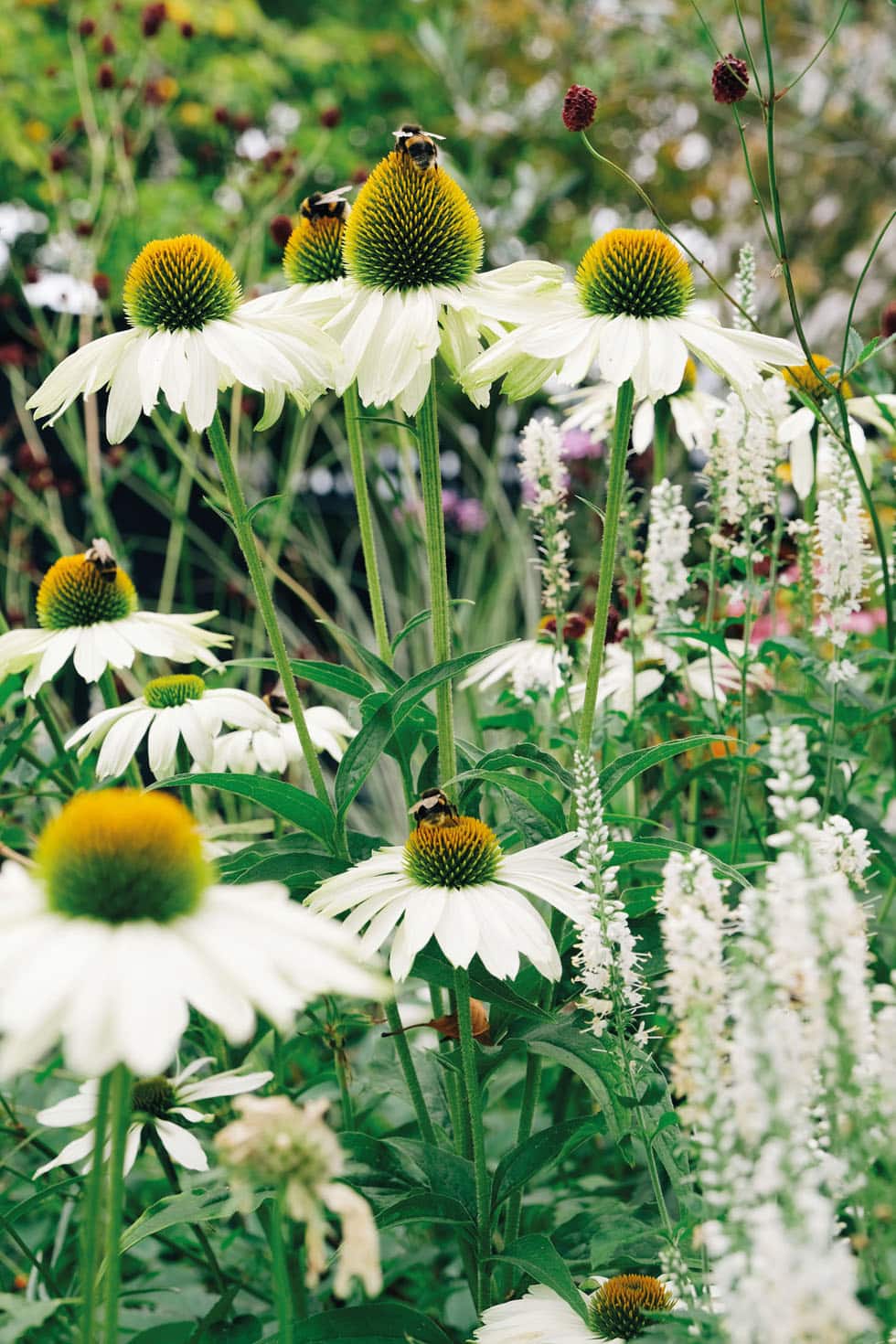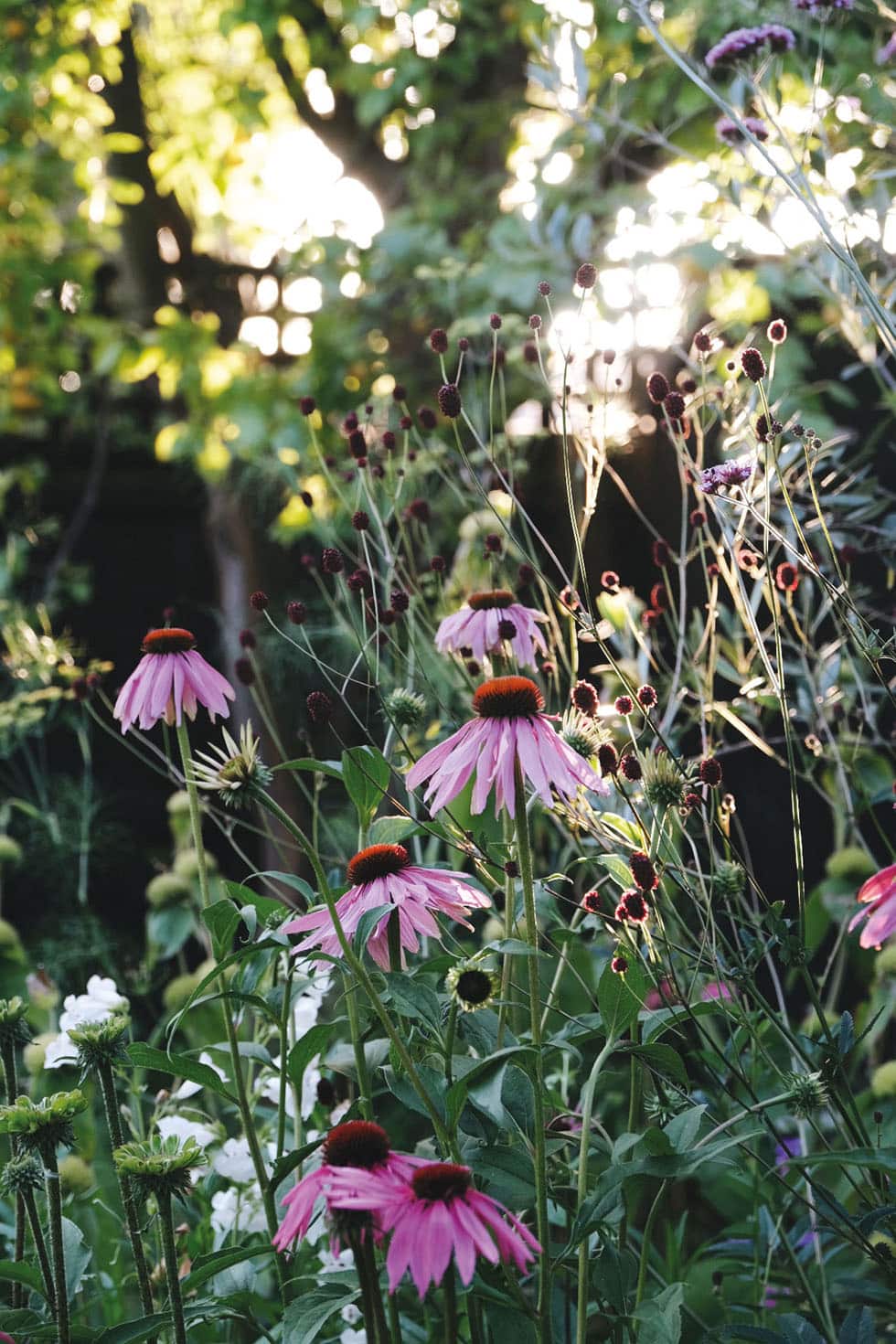She’s a writer and an artist with a background in interior design, who’s run her website Studio Home for 15 years after it began as Aotearoa’s first design blog in 2008, but Ōtautahi/Christchurch’s Julia Atkinson-Dunn had never been a gardener. Since a personal challenge combined with buying her first home saw her add this string to her bow, she’s embraced her new interest with such fervour that she wants everyone to know it’s the best — so much so it’s the subject of her latest book.

Julia, you approach gardening from a decorative rather than a vege-production perspective — what are the biggest pleasures of ornamental gardening for you? My pathway into gardening was led by my interest in space-making and design, which naturally sent me down the rabbit hole of researching plants I liked the look of. As I’ve progressed — luckily, an unavoidable aspect of gardening — I’ve grown to understand that cultivating food and non-edible plants is equally enriching, and in combination, the flowering plants attract pollinators that have a bearing on the success of crops.
I sometimes cringe a little at the evangelical stance taken by some vegetable-only gardeners who hint that ornamental gardening is frivolous. I’ve found the physical and creative work required to make a lovely seasonal outdoor space holds as much value to me as personalising my home for my comfort and wellbeing, but with many more positive benefits for the ecology and health of your little piece of the earth than hanging new curtains.
Your new book, A Guided Discovery of Gardening, speaks primarily to beginners — what do you hope it does for them? The book rests on my aim to open the garden gate as widely as possible for new gardeners, by offering them the basics I’ve found extremely handy and inviting them to see past the somewhat dry, practical aspects of growing. I hope to provoke ideas on the potential to curate a space entirely focused on pleasing yourself. There’s delicious creativity to be found in planning garden beds if you’re armed with helpful information and encouragement, and an unexpected element of refuge that comes from getting your hands busy in the ground. I think there’s a real romance in working with Mother Nature and I wanted my book to open beginners’ eyes to the emotional rewards that lie beyond getting a seed to germinate.


Gardening can provide a connection to history, family and community — what’s been your approach to finding mentors and becoming one yourself? I discovered very early on that learning to garden didn’t need to be done in isolation. Gardeners fall over themselves to assist new ones in any way they can — and find great satisfaction in wooing people with even a slight interest into the gardening ‘cult’! This is what drove me to write and share so widely, in the hope of having more people in my peer group to discuss and enjoy it with — but equally, gardening clubs, community gardens and horticultural societies are a fantastic resource for new gardeners, providing unexpected and enriching connections outside your normal friendship or age group. You may even learn the most about gardening from your neighbours, as they’ve likely got a handle on the type of plants that thrive in your area.
What else does gardening connect you to? It connects me deeply to the flow of the seasons, something I’ve found to be incredibly reassuring. Despite humankind, the early blossom still offers brightness at the end of winter, the warm summer evenings drag us outside and the autumn colour lifts our spirits as we sink into the colder months. When you garden, you start to compare each season to the ones before and notice your wider environment in greater detail — this has had a steadying effect on me, pushing my mind back out into the world when it’s easy to get locked in my own little bubble.
We love how in the book you challenge the belief that a lack of knowledge is a barrier to gardening by asking us to consider: If gardening’s so hard, why do so many people do it? What else can you say to those who need a kickstart? As a non-gardener keen to get started, my lack of knowledge was really intimidating. The most reassuring discovery I made was that the best learning occurred when I started doing. Each plant you put in the ground will be added to your mental library; by simply observing it in your space, you’ll suss out its needs and this gives you the confidence to add more.
It’s also important to understand that gardening is really experimental. You can follow instructions and still suffer failures for no obvious reason, which is okay! Mother Nature has a hand in this process from start to finish, and her plans can help or hinder you. Gardening doesn’t have to be a serious business. Embrace it as something new and positive to interpret in your own way and your own time. Start small and with each successful plant, you’ll find you want to try more.



Your interest began when you put down more permanent roots in your own home — what advice do you have for those who are renting and feel like that’s a barrier? Planting in containers is obviously an excellent option, and gaining permission to add to existing beds or rip up some lawn to plant is also a golden opportunity to start gaining knowledge. Growing vegetables will offer fast, tangible benefits that you can reap the rewards from whether you own the property or not. Many plants can be dug up and divided to take with you if you move, and you can save seeds from your annuals to use in your next garden.
What motivates you to get your hands dirty when it’s cold or wet or you can’t be bothered? I’ve found my garden to be far more forgiving than I thought it would be — it doesn’t need me constantly tending to it. I’ve chased this idea by using tough plants that have low watering needs and are frost-hardy, planting tightly to reduce opportunities for weeds, doing at least one big mulch a year and curating with many types of perennials and grasses that will give me seasonal interest with little help from me.
I don’t force myself outside when it’s wet and cold — that’s not enjoyable for me — and I’ve learned that letting the garden get a bit wild or not doing jobs at exactly the recommended time isn’t the end of the world. When the available time does present itself, a big weekend of tidying up gets things back on track.
What are a couple of the most valuable things gardening has taught you so far? Gardening has reattached me to the concept of patience. We live in a world that thrives on instant gratification and I remember thinking as a non-gardener that growing was just way too slow and boring. Gardening requires you to do lots of jobs that don’t offer any rewards for months or sometimes years, but when you see your first bulb break the earth or the huge amount of growth a tree experiences in a year, you realise instant isn’t always better.
It feels a little dramatic to say that gardening changed my life, so perhaps it’d be better to say it enriched my life. I started a year or so before trying for a baby [with husband Tena Dunn], and although we weren’t successful in that endeavour, lately I’ve been able to reflect on how my garden cushioned me at every turn of that pretty harrowing process. When you do simple tasks like weeding or pruning, your mind is nowhere but on the job. I’d describe the physical aspects of gardening as a form of moving meditation and a forced quieting of the mind — a refuge I found I needed then and still need now.
I’ve created a lovely space where T and I can find peace in working side by side or just flopping on a beanbag under the cherry tree. From a professional standpoint, our garden has given me a place to mix together all my skills and interests, and on a personal level, it gives me a chance to grow and care for something that isn’t just myself.

A Guided Discovery of Gardening by Julia Atkinson-Dunn (Koa Press, $50)
Words Philippa Prentice
Photography Julia Atkinson-Dunn

